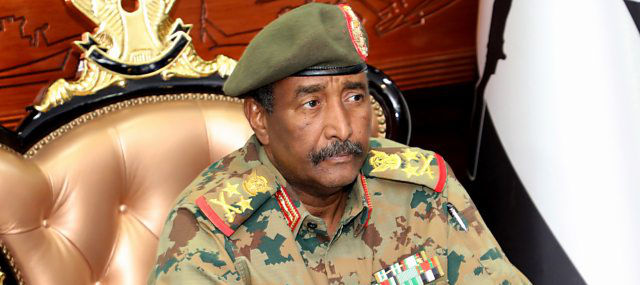Sudan: Any Hope for Democracy?
June 12, 2019 | Expert Insights

BACKGROUND
On April 11th, following 30 years in power, Sudanese President Omar al-Bashir was ousted by the army. A military council led by Lieutenant General Abdel Fattah al-Burhan assumed power, stating that it will oversee a transitional period that will last a maximum of two years. However, the civilians had just about enough and were adamant on taking things into their own hands. They had resorted to extensive protests and presented a united front, putting aside religious and ethnic divisions for the sake of the greater good. In retaliation, the security forces embarked upon a brutal crackdown on pro-democracy protesters in the capital of Khartoum. After unhesitatingly opening fire, they even went so far as dumping the bodies of dozens of murdered victims in the Nile, inhumanly leaving them to float down the river.
ANALYSIS
The six months of sustained protests that toppled al-Bashir’s government sparked serious hopes of a democratic renaissance. However, the military’s recent campaigns of gunfire, assault and rape have put these hopes to a premature pause, if not end.
Burhan’s military junta has now begun to control even the information being disseminated to the outside world through its blocking of the internet and banning of Al Jazeera journalists. Such aggressive manoeuvres, coupled with the unprovoked killings of scores of protesters have led the international community to fear the worst, with the African Union rightly suspending the country’s membership. Stopping a spiral into civil war has now become the priority, following the breakdown of the previously agreed-upon deal. According to the plan, they were to build a civilian-led executive overseen by a sovereign council for a three-year transitional period leading up to elections. Fearing that such a deal ceded too much power, the Rapid Support Forces (RSF) and other disgruntled elements seem to have scrapped the deal and instead moved forward with dispersing the protesters using any means necessary.
Ironically, the junta’s most vociferous support lies outside the Sudan area. The Saudis and Emiratis are confident that Burhan and his deputy, commander of the RSF ‘Hemedti’, will shepherd the country through a managed transition from one military-led regime to another. For this to occur, avoiding the interlude that occurred in Egypt is essential, which they are making sure of by sidelining those favouring more holistic reform, i.e., a majority of the civilian protesters.
COUNTERPOINT
There are signs that the junta along with their Gulf backers have softened their position in the face of widespread condemnation and revulsion at the attack on unarmed protesters. Moreover, many of Sudan’s officer corps have shown signs of entrusting their fate to Khartoum’s opposition elite rather than to Hemedti. This is because, over time, they have begun to view him as a thuggish provincial overlord who lacks the legitimacy and political constituency to rule on his own. This means that such a fissiparous security apparatus offers less of a foundation for a political regime than the united front presented by the primarily-civilian opposition.
ASSESSMENT
Our assessment is that the key to a peaceful settlement and to a successful transition to democracy, lies in prompting the junta’s Arab backers to rapidly backtrack. Furthermore, we feel that the Peace and Security Council of the African Union should follow up on its suspension of Sudan’s membership by pressing its authorities to drop their unilateral decision to hold elections within nine months. Instead, the military should carry on with the agreed-upon deal with the opposition, for a civilian-led transitional administration.
In addition, the junta must undertake a range of confidence-building measures such as releasing all political prisoners, acceding to an impartial commission of inquiry into the killings and swiftly reinstating access to telecommunications. Finally, it is imperative, although unlikely, that the RSF leadership pull their troops out of Khartoum in order to give space to the parties to strike a reasonable deal, so as to prevent a dangerous descent into civil war.








Comments